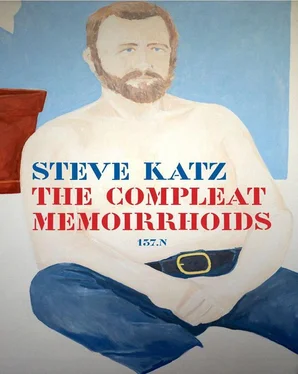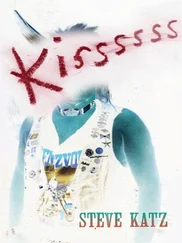I am headed for the island of Crete, eventually to the Southwest part, which is on the Libyan Sea, maybe a hundred miles from Libya, a couple of hundred from Tripoli. This flexing of American muscle, to bomb alleged targets, killing civilians in Libya, isn’t going to turn me back. I intend to have my frolic among the Minoan sites. Bettino Craxi, Italian Prime Minister, strongly opposes the American attack, and won’t let the US planes fly over Italian air space. They probably took off from Friuli, the base in Aviano. I’ve been there, taught a class on the base in Aviano, met some decent American individuals there. The Libyan incident calms down while I’m in Crete, and I return to Athens, fixing to take the train through the still intact Yugoslavia. It’s a train ride I’ve wanted to do for years. It leaves in the morning, rides through the night, arrives in Venice on the following afternoon.
I grab a window seat, riding forward in the compartment. A grim looking Serbian couple, many suitcases and bags on the rack above them, sit across from each other near the door. They sit in silence, don’t smile, give me a gray look they maintain throughout the ride. The middle seats are empty. A swarthy middle-eastern man rides backwards at the window across from me. He is impeccably dressed in a brown suit with a narrow green knit tie on a pale orange shirt, his oxblood oxfords are spit-polished, cufflinks gold, a green handkerchief peaked in his lapel pocket. It’s a friendly face, deep brown eyes, heavy lips smiling, teeth a little off-white, complexion scarred long ago with adolescent acne.
We exchange polite nods and both of us doze off for the first couple of hours. The train moves through Macedonia at a modest clip, then pauses at the Albanian border to let the border guards crawl up the corridors checking passports. The border control lands heavily on the Serbs, shouting at them, slapping their documents, and poking at their bags. Finally we move again, rattle into Albania. I notice the same thing I did the first time I went through Checkpoint Charlie to get into East Berlin, how without commercial advertising the route seems at first colorless, but after a while it’s refreshing as your attention goes to the passing landscape and not to some intrusive commercial message.
The train winds through the grim outskirts of Tiranha as the gent across from me starts a conversation. “Hoxha,” he says, and shudders, pointing out the window at the devastation, and people watching, mostly shoeless children dressed in rags, who wave at the train. “Bad dictator. You speak English? Yes? I am from Cairo. I am Egyptian guy.” He has decided to take the train all the way to Zurich rather than fly. His girlfriend lives there. He asks me if I have ever been to Egypt. “Also poor people,” he says, and hands me his card. Okasha Eldaly is his name, Tour Manager his game. “You come, I will place you on excellent tour. Very information. Comfortable. Safe.” He was a personable guy, friendly. He seemed sincere. I would join one of his tours. My buddy, Pete Dean, mad prolific painter, returned recently from Egypt and said that the Egyptians were totally friendly, and anyone who considers himself civilized should go at least once.
The couple gets off somewhere in the early evening. We have the compartment to ourselves. As we roll deeper into the Yugoslav night both of us fall asleep. At about three A.M. the train clanks to a stop and there is an announcement in what I imagine is Serbo-Croatian. People get off. I think we are in Belgrade. Okasha sleeps. I dip back into dreams, but then I suddenly sit up. The car is dark. Something is wrong. I shake Okasha awake. There are no people in the other compartments. “What is this? Where are we?” He looks at his watch. “Here is Belgrade,” he says. We are alone in this car, separated from the train, sitting on a side track. We quickly gather our stuff and jump off the end of the car onto the tracks. There is no platform. All signs are in Serbian Cyrillic alphabet. I see BEOGRAD dimly lit on a sign far across the tracks. We try to speak to the few workers but they are not helpful, don’t respond to English, French, Italian, Arabic. Since it’s not part of their job they act as if we don’t exist. Stranded in the middle of the rail yard with our suitcases, clueless in Belgrade dark. Our confusion deepens the cold night, the smell of tar. We can be here forever, no one even to point the way. We think we see a dimly lit train about twelve tracks over. Maybe it’s alive. We rush across and climb onto the platform. A locomotive clanks into it, and the lights come on. We stare into the windows to see if we recognize anyone. Just as it starts to move we jump on. It’s a chance we have to take. By the grace of the railroad imps we have arrived on the continuation of the train that abandoned us; otherwise, we could still be in Belgrade. We find an empty compartment and settle into seats and let out a mutual sigh, bonded forever by our modest victory.
We pull into Trieste early in the morning. I’m slightly relieved to be back in the free world. There’s a long wait for security and passport control to come through. Okasha looks nervous. He says nothing, can’t meet my eyes. We hear how peremptory and strict the officers are questioning people down the corridor. On December 27 four gunmen from Abu Nidal with assault rifles and grenades attacked the El Al ticket counter at Fiumicino airport in Rome, killing sixteen and wounding ninety-nine. The Italians are being very cautious at their borders. Maybe Okasha gambled he’d have a better chance by train than by air. The guards look at my passport and hand it back. One look at Okasha and they order him into the corridor, hands on the wall. I sit down and listen to them question him gruffly. They hardly speak English. I step into the corridor to offer myself as translator. These are two big Italian border control officers. “Ma voi, qui siete?” says the bigger one, with a Mussolini thrust of his chin. I try to explain that I speak Italian and English, and ask if I can help. I like Okasha Eldaly. “Andate dentro, voi. State zite.” He uses an ultra-formal, fascist mode of address. His partner, a big wrestler type, grabs me by the arm and tosses me back into the compartment. He doesn’t say a thing, but points at my bags. He wants me to open them. I pretend not to understand. “Apritene!” he growls. I open the backpack and the little overnight carry-on. He upends the contents onto the seat and throws around underwear, shirts, camera, spare pants, notebooks, socks, laundry, airline ticket, all onto the floor and seat. I feel totally violated. The other one comes in and grabs Okasha’s suitcase. By the time I look in the corridor again Okasha is gone. My Egyptian friend and traveling ally has been taken away to be further harassed, or jailed, or sent back to Egypt. The train slowly pulls out, and I am left to repack the bags, and continue alone into the gleaming, intricate city of Venice. The tide is in, and a faint smell of sewage rises from the salt water that covers Piazza San Marco.
After handball I headed for the party. I was a fair handballer and occasionally played with Peter Campus, a video artist and photographer, at a YWCA on West 54th St., where courts were usually available. I was a big fan of Jim Jacobs, National Handball Champion, who many major athletes of the time called the greatest athlete pound for pound, inch for inch, of the twentieth century. Peter was new to the game. The only way for me to get a good workout was to keep my right hand strapped under my waistband. That was how I developed my left hand. I had a tougher time figuring out how to manage my moves in the writing world, now that interest in my work was ripening.
Читать дальше












